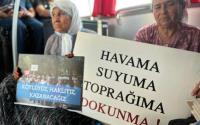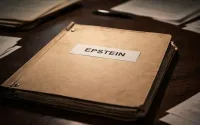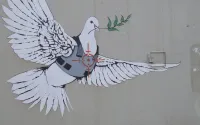In recent years, Pakistan has provided banks that wired money for the 9/11 plot, been the chief source of illicit nuclear proliferation, offered a tribal-area haven for planners of worldwide terrorism, abetted the reconstitution of the Taliban and educated many a suicide bomber in Islamic religious schools.
At the same time, President Pervez Musharraf, the recently retired general in power since a 1999 coup, has received about $10 billion in U.S. aid, much of it to reinforce the Pakistani military in fighting Al Qaeda, the Taliban and global jihadism in South Waziristan and other tribal areas.
If a U.S. policy was ever broken, this is it.
The assassination of Benazir Bhutto, the Western-educated former prime minister who returned from exile on Oct. 18 under a flawed U.S.-mediated plan to shift Pakistan from direct to indirect military rule with a civilian veneer, has given the coup de grâce to this botched American attempt to manage a nuclear-armed Islamic state.
It's not clear who killed Bhutto, although hers was a chronicle of a death foretold. Musharraf's government, whose credibility is shot, says that Baitullah Mehsud, a militant of growing influence with links to Al Qaeda and the Taliban, was behind it.
That would exonerate the military, whose opposition to the democratic movement Bhutto personified goes back to its execution of her father; the ISI intelligence services who long nurtured Taliban zealots as agents of influence in Afghanistan; and Musharraf himself, who knew Bhutto's vulnerability.
With accounts of the cause of death shifting mysteriously from bullet wounds to the bombing that followed the gunfire, it's too early to discount the possibility that the assassin, or assassins, got some help from Pakistan's many official reservoirs of extremist Islamist sympathy.
Shots to head and chest followed by bombing bear the hallmark of a "shoot and destroy" attack, what British special forces would call a "double tap." It's suspicious that both the crime scene and her car were cleaned up before investigators had access.
Senator Hillary Clinton's call for an international inquiry is a good one. How can Musharraf, who showed his contempt for an independent judiciary by dissolving the Supreme Court in November, oversee a credible investigation? It should be accompanied by a U.S. congressional inquiry into post-9/11 American policy toward Pakistan, the country that the crisis of Islamic civilization has made more dangerous than any.
But some things need no elucidation. First, the United States, out of misplaced deference to Musharraf, failed to secure Bhutto the protection she was demanding. Her husband, Asif Ali Zardari, visited the United States shortly before her death to plead for help, but was denied the meetings he sought at the top levels of the State Department. Similarly, the Bush administration failed to pressure Musharraf to accept Bhutto family demands for FBI involvement in the investigation of the attempted assassination of Bhutto on Oct. 18. President George W. Bush knew people close to Musharraf had reason to fear Bhutto's ascent to power.
Second, Al Qaeda has turned some of its attention from Afghanistan to the richer rewards of upending Pakistan. "My sense is Al Qaeda might be losing interest in Afghanistan as the center of regional gravity for their struggle and is now focusing fully on Pakistan," said Julian Lindley-French, a military analyst.
Third, Musharraf's ambivalence has hurt U.S. interests, culminating in a murder that shames America. He has safeguarded the nukes but never ensured that his military or intelligence services break from their Taliban baby. Conflict in the border badlands and Afghanistan has kept American money and materiel flowing. This double game must end.
Fourth, years of strong economic growth have expanded a Pakistani middle class that wants democracy's rule of law. Radical Islamist parties constitute a minority: Unlike in the Shah's Iran, democratic forces outweigh the theocratic. A discredited Musharraf can do nothing for Pakistan without credible elections. Credibility requires international monitors or a transitional arrangement allowing all major parties to participate in the vote's organization. The election should be held as soon as possible after the planned date of Jan. 8. A large sympathy vote for Bhutto's Pakistan People's Party is likely.
Fifth, the United States must redirect policy toward forthright support for democracy. The Bush administration has seen the military as a bulwark against extremism. The true bulwark, as Bhutto knew, is the middle class. Barnett Rubin of New York University observed, "If Afghanistan is ready for democracy, Pakistan certainly is."
Sixth, the absence of any engagement with Iran leaves the United States over-dependent on Pakistan for influence in Afghanistan. A great post-9/11 tragedy has been the U.S. failure to build on the Iranian opening that the overthrow of a shared enemy, the Taliban in Kabul, created.
Bhutto's loss is devastating, comparable to Yitzhak Rabin's. Her Kennedy-like family tragedy leaves the fathomless void of what might have been.
I met her more than 30 years ago when we were at Oxford. Arriving late one night at Balliol College, I saw a solitary light in the quadrangle. On a whim, a fellow student and I went to the room. There was Bhutto deep in earnest talk about politics. She was gracious at the intrusion, memorably so.
Of grace and conviction her unusual fusion of East and West was formed. Only Pakistani democracy can avenge, in part, the disappearance of the rare bridge she offered and offset the American mistakes that led to this loss.
Readers are invited to comment at my blog: www.iht.com/passages
http://www.iht.com/articles/2007/12/30/opinion/edcohen.php?page=2






